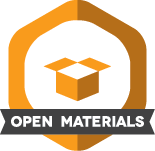|
Persistent Identifier
|
doi:10.7910/DVN/ZB9RB1 |
|
Publication Date
|
2024-10-07 |
|
Title
| Replication Data for: Elites, the Aid Curse, and Chinese Development Finance: A Conjoint Survey Experiment on Elites' Aid Preferences in 141 Low- and Middle-Income Countries |
|
Author
| Blair, RobertBrown University |
|
Point of Contact
|
Use email button above to contact.
Robert Blair (Brown University) |
|
Description
| Why do elites in low- and middle-income countries (LMICs) favor some foreign aid projects and partners over others? Research on the "aid curse" and Chinese development finance suggests elites should prefer aid that can be easily captured, with few conditionalities, regulations, or transparency requirements. We administer a conjoint survey experiment across 141 LMICs to elicit the aid preferences of elites who are uniquely close to development policy debates. Perhaps unsurprisingly, we find that elites favor larger over smaller projects, grants over loans, and transportation infrastructure projects over initiatives focused on civil society or tax collection capacity. But contrary to the aid curse theory, elites also prefer projects with transparent terms and labor, corruption, and environmental regulations, and are at worst indifferent towards good governance conditionalities. These preferences hold even in corrupt and autocratic countries, and even among high-level government officials who might be expected to favor "no-strings-attached" aid regimes. |
|
Subject
| Social Sciences |
|
Keyword
| foreign aid; aid curse; accountability; Chinese development finance; survey experiments; conjoint experiments |
|
Notes
| This dataset underwent an independent verification process, complying with the AJPS Verification Policy updated June 2023, which replicated the tables and figures in the primary article. For the supplementary materials, verification was performed solely for the successful execution of the code. The verification process was carried out by the Cornell Center for Social Sciences at Cornell University.
The associated article has been awarded the Open Materials Badge. Learn more about the Open Practice Badges from the Center for Open Science.

Open Materials Badge |
|
Producer
| Robert Blair (Brown University) |
|
Depositor
| Blair, Robert |
|
Deposit Date
| 2024-04-19 |
|
Data Source
| Custer, S., A. Dreher, T.B. Elston, A. Fuchs, S. Ghose, J. Lin, A. Malik, B.C. Parks, B. Russell, K. Solomon, A. Strange, M.J. Tierney, K. Walsh, L. Zaleski, and S. Zhang. 2021. Tracking Chinese Development Finance: An Application of AidData’s TUFF 2.0 Methodology. Williamsburg, VA: AidData at William & Mary.
Dreher, A., A. Fuchs, B. C. Parks, A. Strange, and M.J. Tierney. 2022. Banking on Beijing: The Aims and Impacts of China’s Overseas Development Program. Cambridge, UK: Cambridge University Press.
Custer, S., T. Sethi, R. Knight, A. Hutchinson, V. Choo, and M. Cheng. 2021. Listening to Leaders 2021: A Report Card for Development Partners in an Era of Contested Cooperation. Williamsburg, VA: AidData.
Marshall, M.G. and T.R. Gurr. 2020. Polity5: Political Regime Characteristics and Transitions, 1800-2018. Vienna, VA: Center for Systemic Peace.
OECD. 2024. OECD Data Explorer. Paris: OECD.
Transparency International. 2024. Corruption Perceptions Index. Berlin: Transparency International.
International Development Association. 2024. Borrowing Countries. Washington, DC: World Bank Group.
United Nations Security Council. 2024. Member Countries. New York: United Nations.
World Bank. 2024. World Development Indicators. Washington, DC: World Bank Group. |
